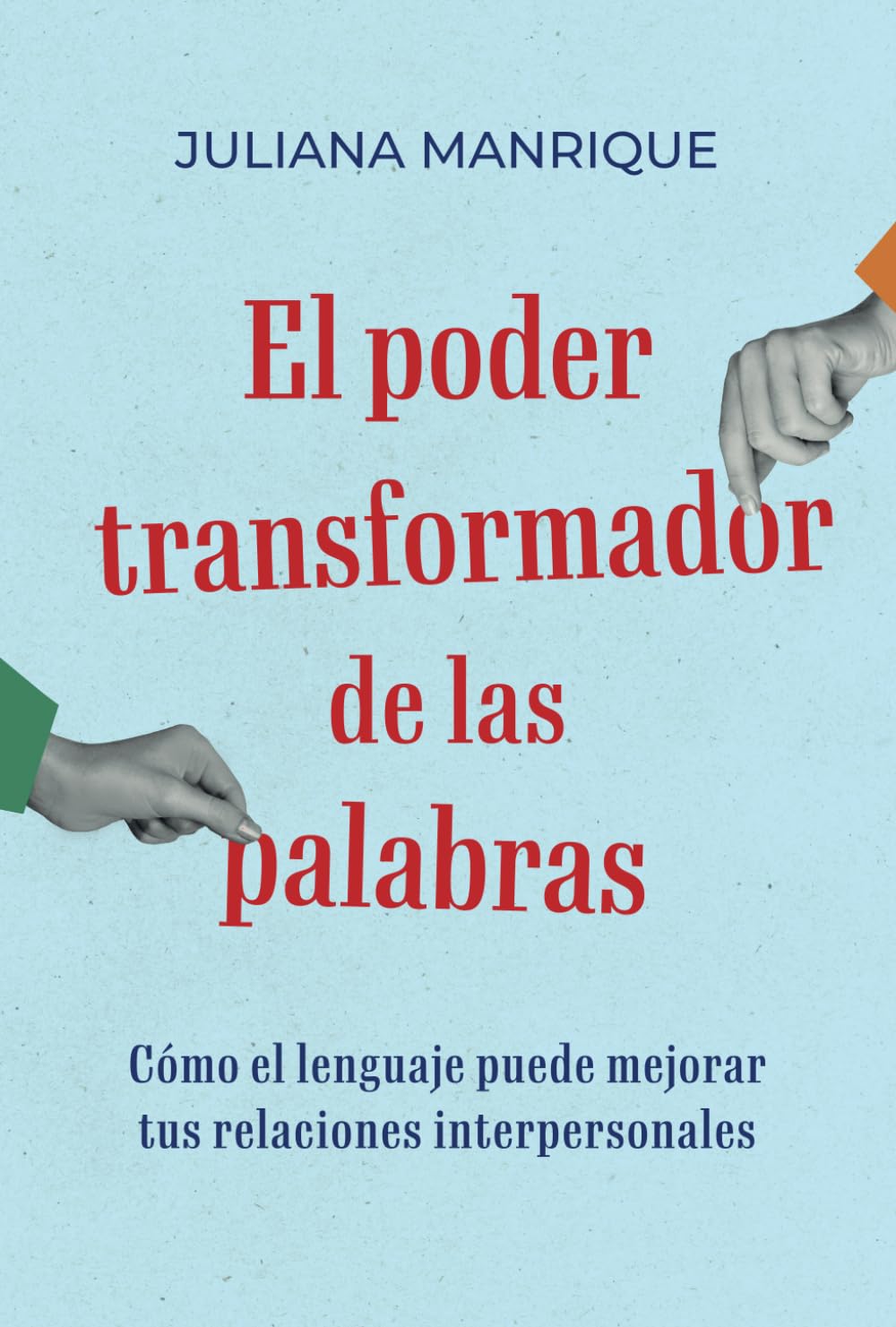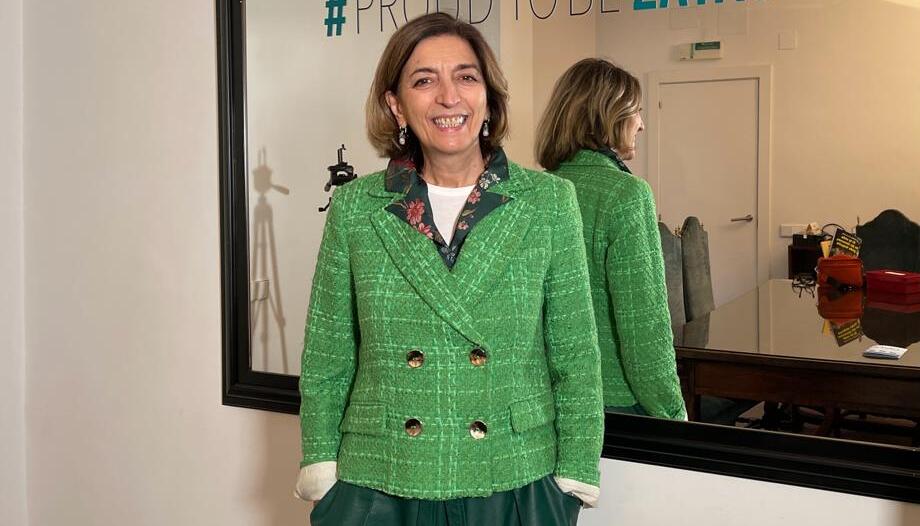Juliana Manrique's book aims to help to have satisfactory interpersonal relationships, which are "a source of happiness". It is not necessary to advance much in the reading of 'The transforming power of words', to realize that we are in front of an unconditional of the conversation, which is "human and humanizes us", "without mobiles in front". "Not to converse is to cancel ourselves voluntarily", she assures.
Economist, master's degree in journalism, professional coach and member of the association AECOP-As a member of the Spanish Coaching Association, her current work is focused on training teachers and professionals in other business areas, and on accompanying clients in individual sessions who want to address personal challenges by improving their communication. She also collaborates with the Spanish Resilience Institute and the association "Mejora tu Escuela Pública".
In the interview we asked him about different profiles of people, and about words that appear frequently on his pages.
At the beginning of your book, you define yourself as a "coaching professional", coach (trainer). Is it about accompanying, advising? Only in labor relations?
- Coaching is a methodology of accompaniment in which different tools are used. A client comes to you with a work objective or concern, and as the person is a unit, obviously his improvement influences all areas of his life.
What is its purpose? Perhaps the subtitle gives us a clue.
- Most of the cases that are presented to me, and I believe that this is the heritage of humanity, have a large component of difficulties in interpersonal relationships. In this sense, there is suffering, and this book wants to help to have satisfactory interpersonal relationships, which are a source of happiness.
Please reveal an author who has worked on these ideas, and whom you may cite. Does coaching have anything to do with psychology?
- There are many... If I have to say one, I'll go with Stephen Covey, full of humanity and common sense; one of his books is a classicThe 7 Habits of Highly Effective People.
Coaching does differ from the work of a psychologist; although there are psychologists who are trained as coaches. In my case, I work with my client on objectives that involve the whole person. They improve her and her whole environment.
I mention some words that you frequently quote, and tell me what they suggest to you, a flash. For example, accompaniment.
- Welcoming and interest in people.
Conversation.
- Learning.
Listen.
- Be present at 💯.
Multitasking.
- Activism.
Emotions.
- Involuntary response to everything that enters us through the senses.
We often talk about work or business coach, sports coach, educational coach... You are a coach in Humanae Foundation. A word for people with problems in their jobs, or who lose their jobs.
- It would be a great reduction of reality to use only one word in the face of problems in the work environment or to be left without a job. In some cases, accompaniment may be needed to help us respond in such a way that it is a personal growth. There is a whole process of acceptance and response to the situation.
Another one to reconcile work and family, sometimes complicated. What priorities do you advise?
- Priorities have to be present in our behaviors; because they speak of the meaning of our life and the kind of people we want to be or what kind of family we want to build.
Spiritual. A brief piece of advice. 1) We begin with people who are far from the faith and the Church, but with a restless heart, as St. Augustine said, who are searching for something.
- More than advice, I would suggest that they look back, and with "the art of questioning" (mayeutics), help them to reflect and discover the divine presence in these life experiences.
2) Young married couples, sometimes also far from religious practice.
- For a harmonious development of the personality, especially when it is a question of undertaking a life project in common, it is advisable to work on all the dimensions, and among them is the spiritual dimension.
3) Mature marriages, years struggling.
- The art of conversing, of sharing and continuing to work on all those skills of admiration, listening, empathy, kindness, understanding, assertiveness...
4) Elderly, grandparents.
- In any life cycle it is important to know that you have talents, which you have to put at the service of society... If you don't, they rot and no one benefits from them.
Any questions you would like to comment on?
- Encourage conversations in families; spend time together to get to know each other, self-knowledge, learn from each other, enjoy each other, etc. In my work as a coach I like to make sure that what my client wants to achieve is in line with the real values and so all the learning is internalized.
Juliana Manrique. The transforming power of words








